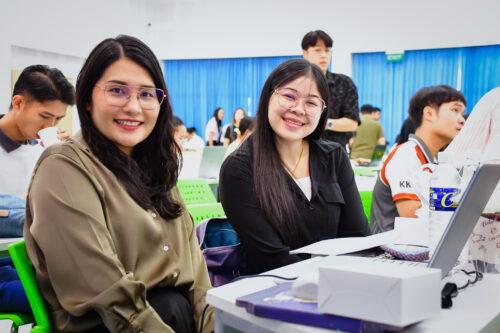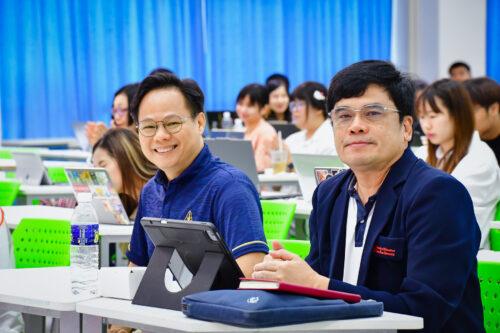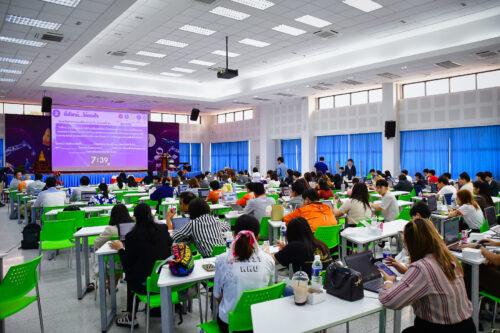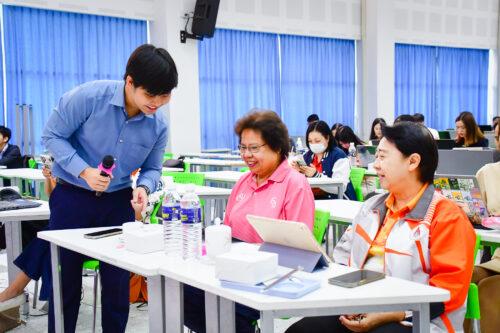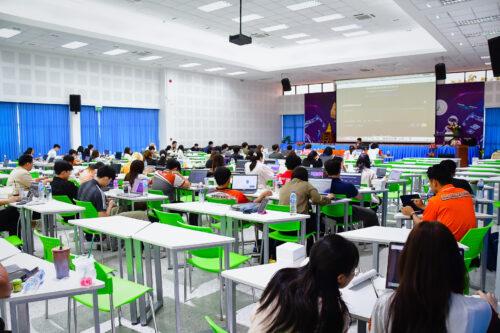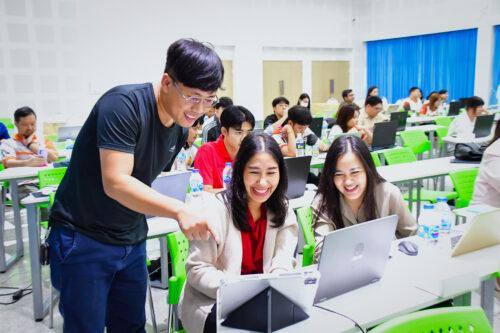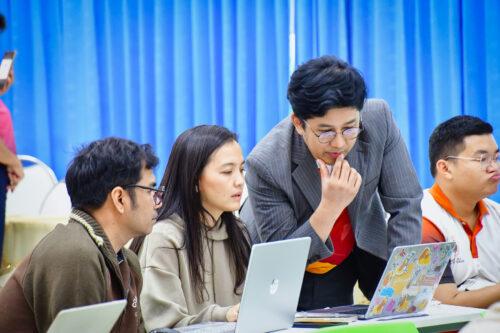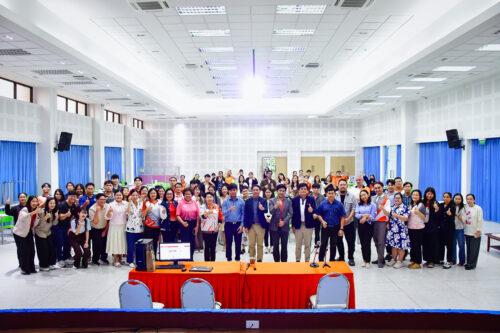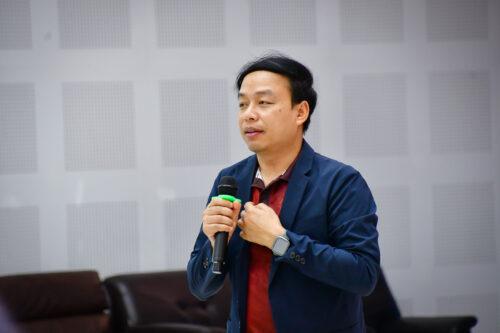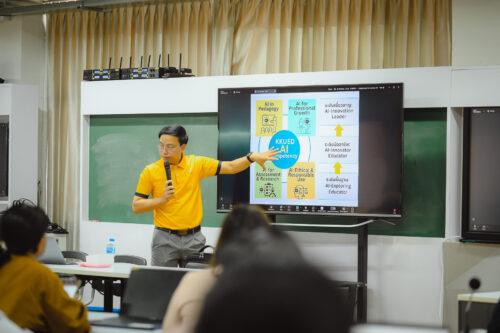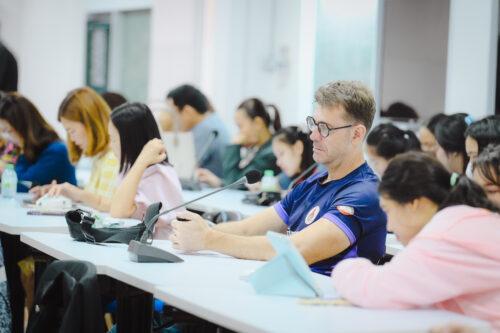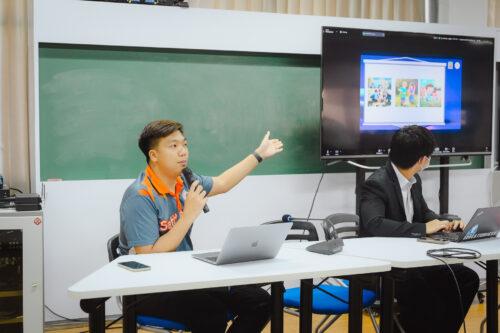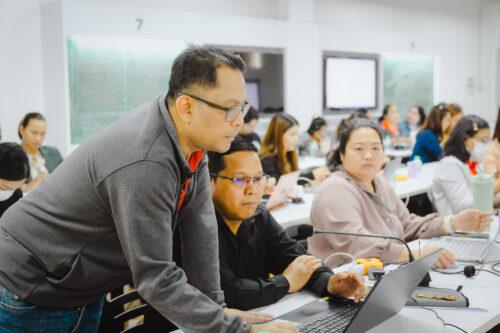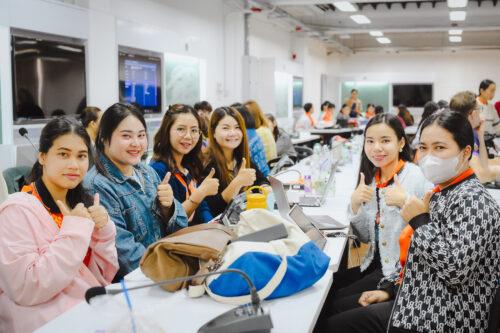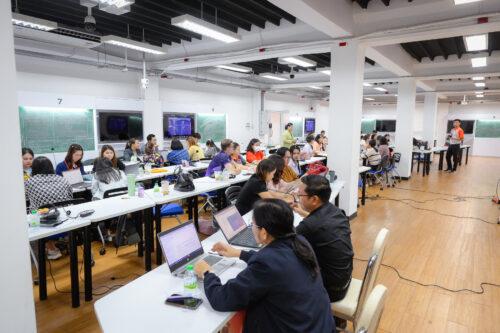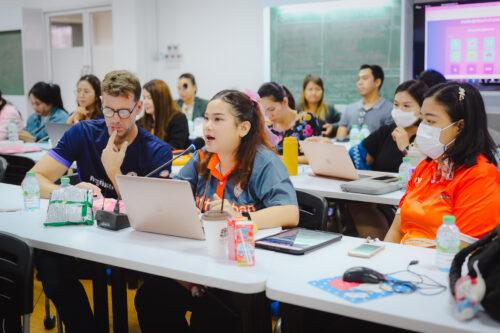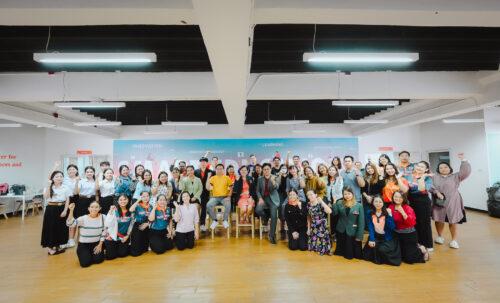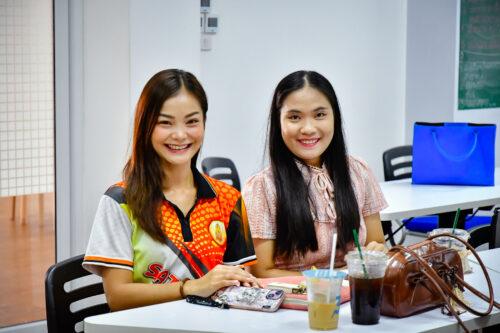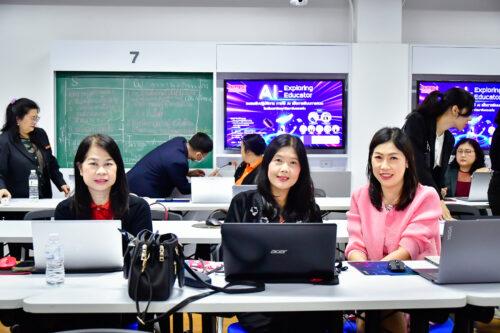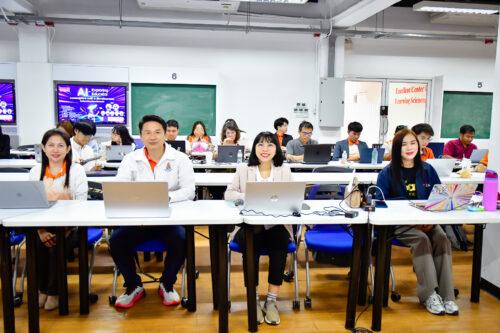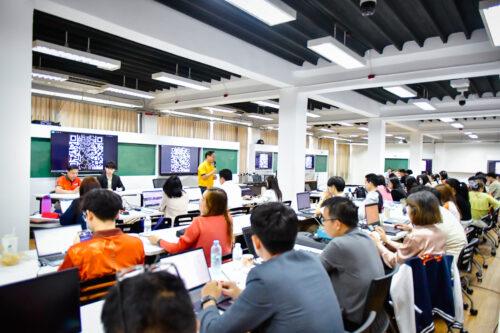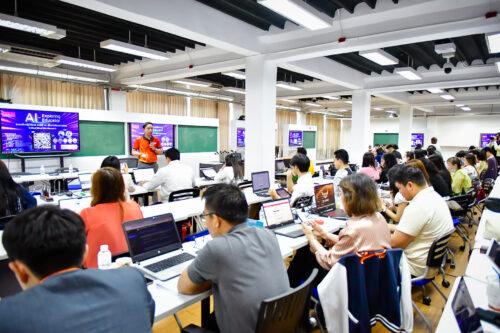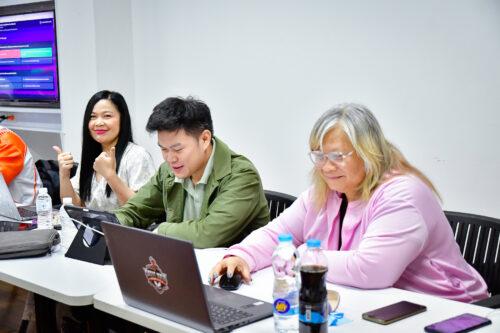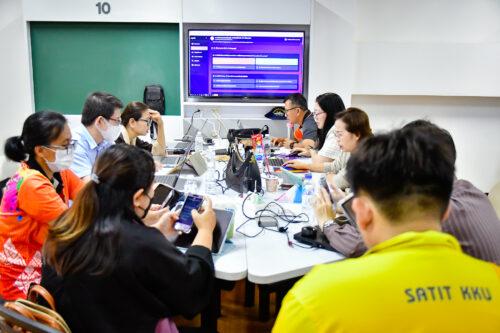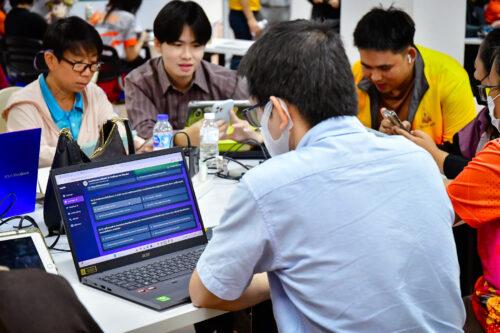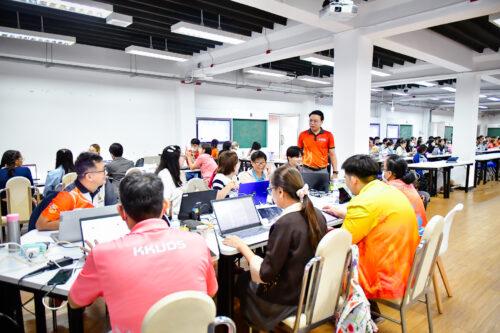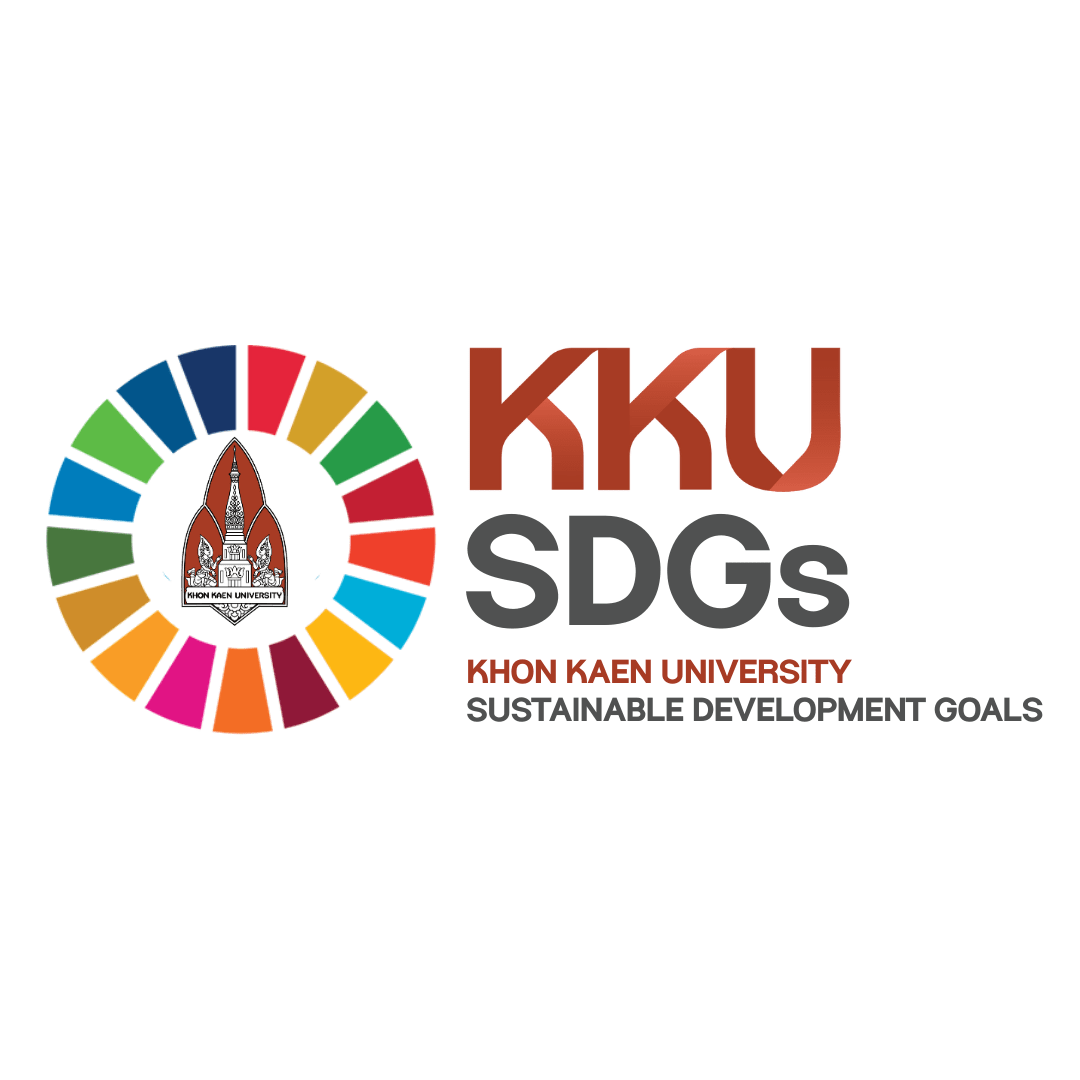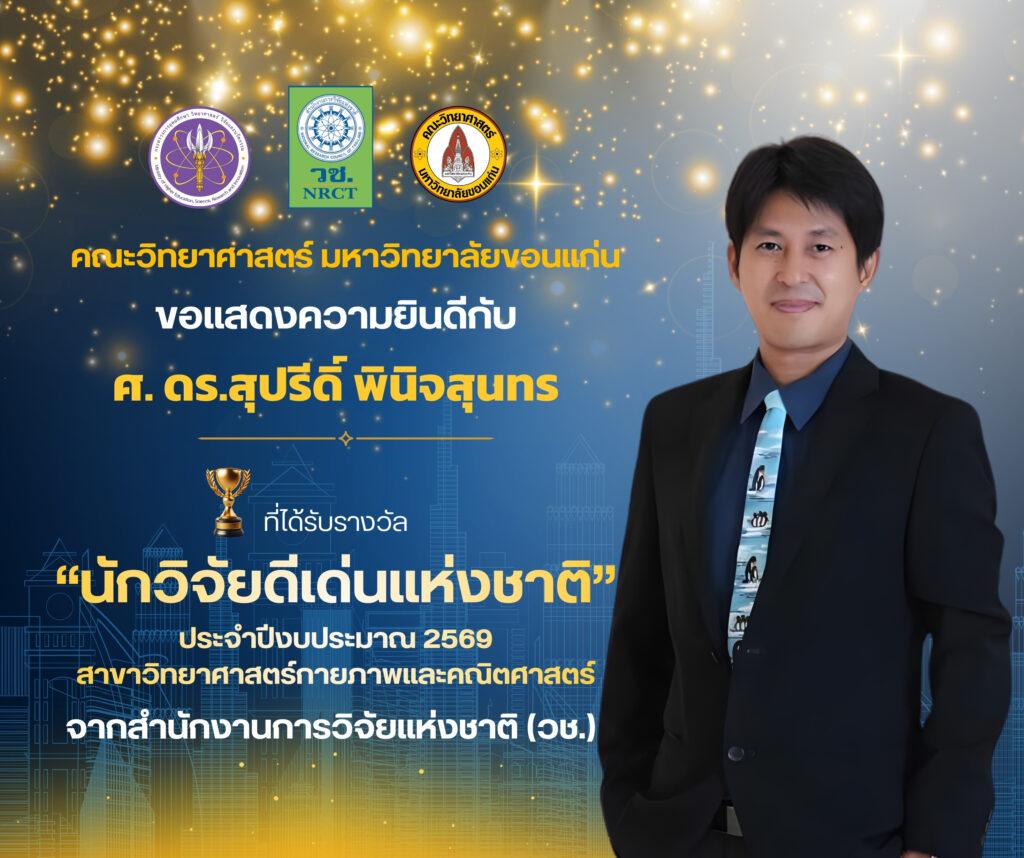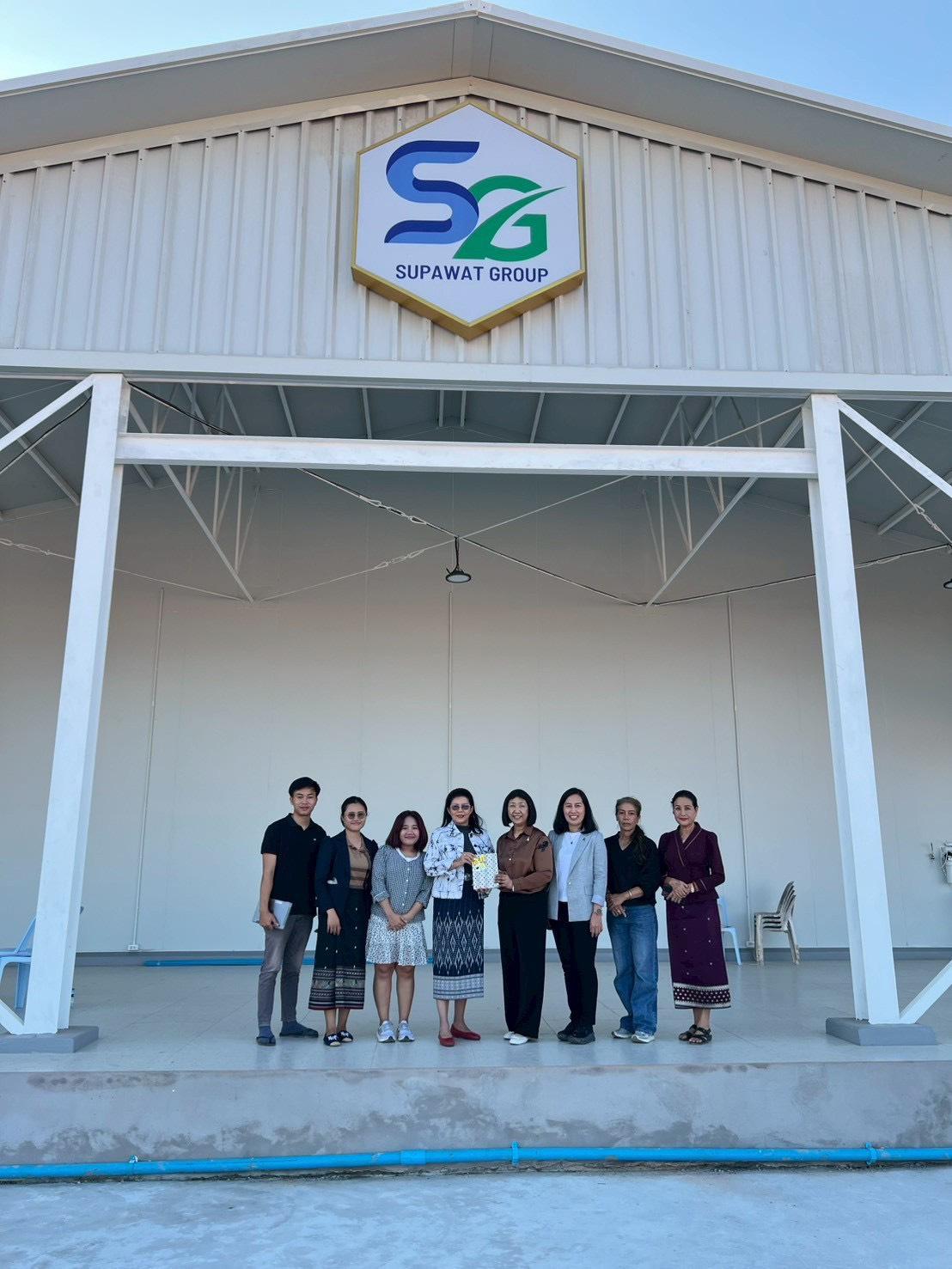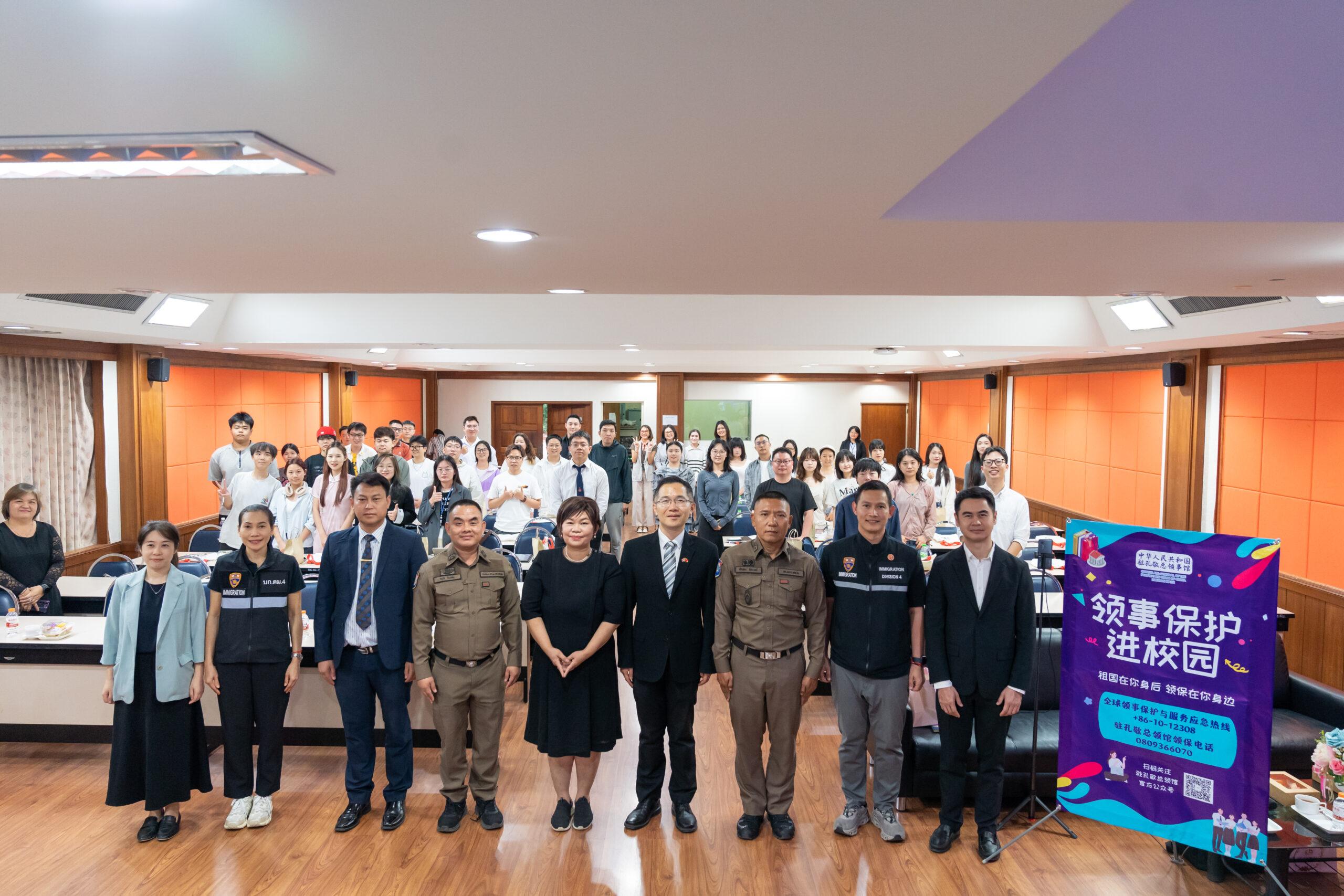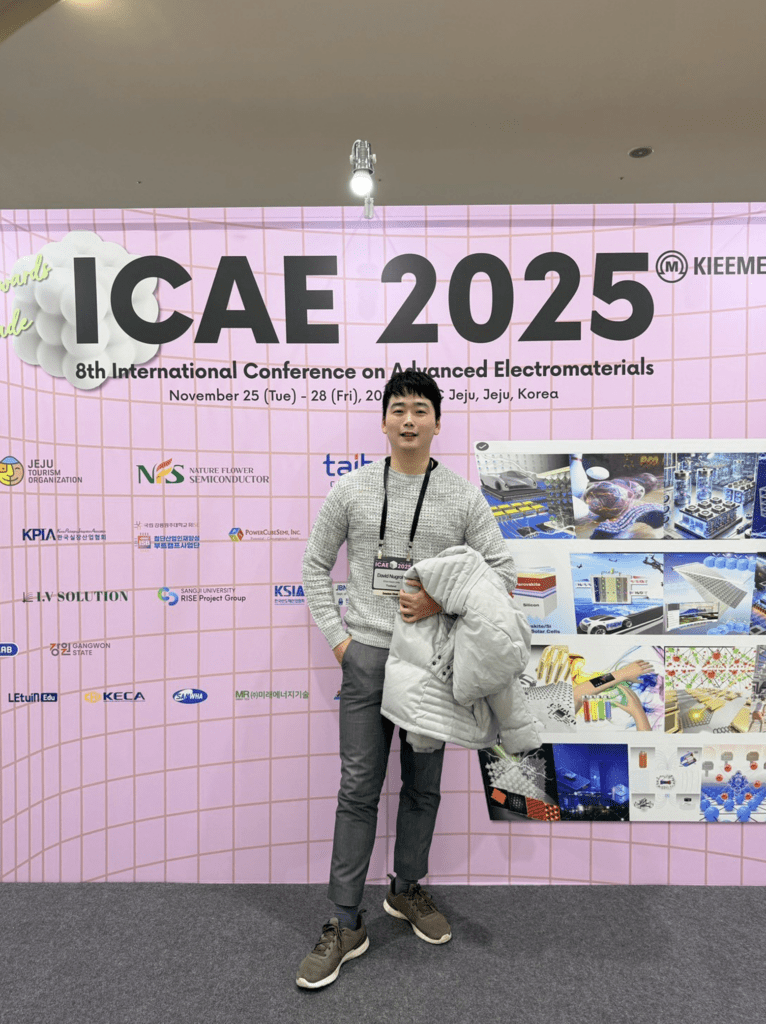From June 28 to July 6, 2025, the Faculty of Education at Khon Kaen University hosted a hands-on workshop titled “AI-Exploring Educator” to enhance the capabilities of teachers from the KKU Demonstration Schools in applying artificial intelligence (AI) to their teaching practices. Central to the workshop was the KKUED AI Competency framework—developed to guide the transformation of teaching and learning in a meaningful and forward-looking way.
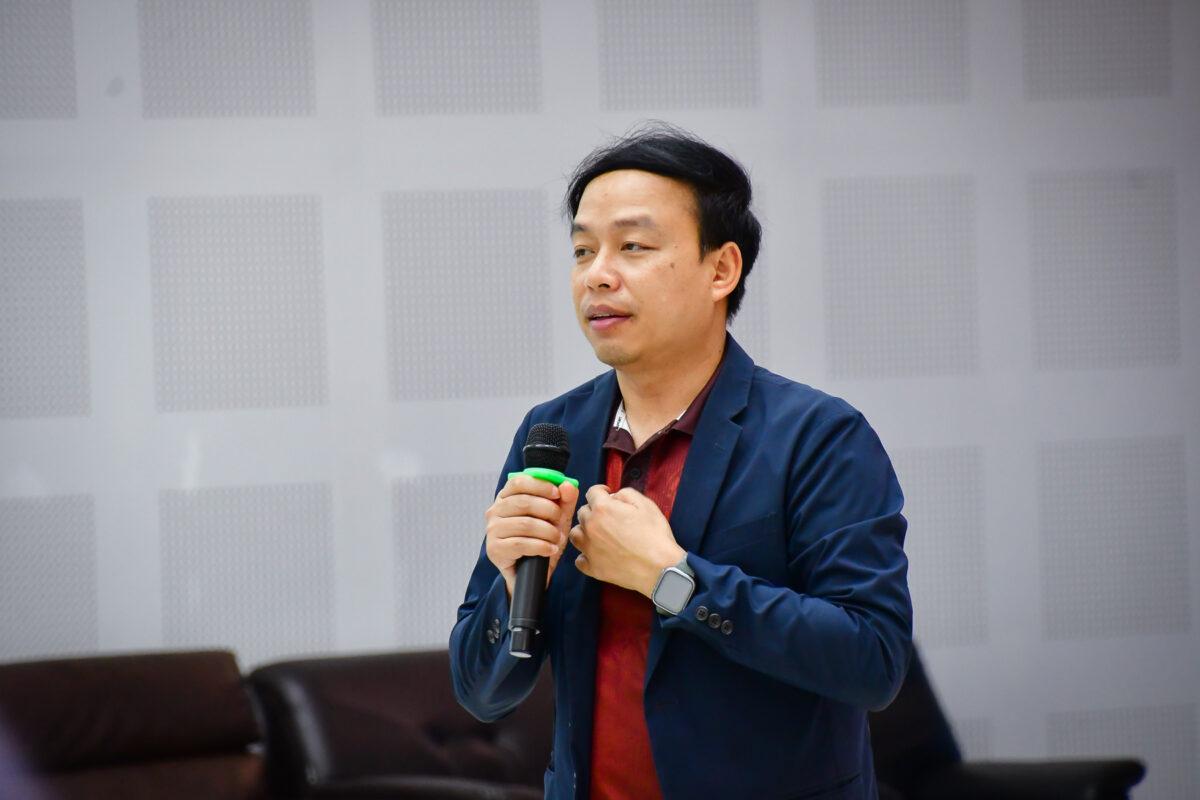
Associate Professor Dr. Issara Kanjug, Dean of the Faculty of Education, emphasized that the goal of the program is not merely to train teachers to follow technology trends, but to cultivate educators as “learning architects”—professionals capable of thoughtfully integrating AI to create rich, effective learning environments for their students. This vision shaped the development of the AI Competency framework, which provides a roadmap for teacher development across four key dimensions.
The first focuses on foundational understanding and critical thinking about AI. Teachers are encouraged to grasp how AI functions, recognize its limitations, and think beyond tool usage by developing the ability to ask meaningful questions—such as being aware that AI can generate false information and is not always reliable.
The second area highlights the use of AI to enhance teaching methods. Rather than replacing teachers, AI can support lesson design, analyze student work, and generate personalized learning tasks. Teachers are encouraged to use AI to raise the quality of instruction, not just to save time.
Equally important is the emphasis on ethical and responsible use of AI. Educators are urged to discourage plagiarism, protect student data, and uphold standards of digital ethics, including privacy and proper data use.
Finally, the framework supports the concept of teachers growing alongside AI as co-creators. AI can serve as a reflective partner—helping educators refine lesson plans, ask new pedagogical questions, and explore different perspectives in teaching, thereby promoting continuous professional development.
Throughout the workshop, teachers actively engaged in developing teaching materials using AI-powered tools created by the faculty. They experimented with prompt engineering, generated instructional images and videos, and designed innovative lesson plans that integrated AI to enhance classroom experiences.


